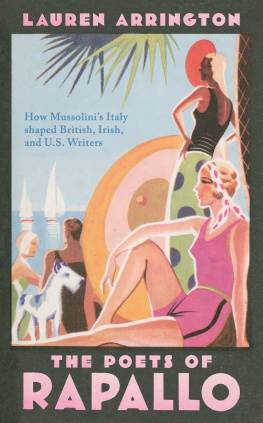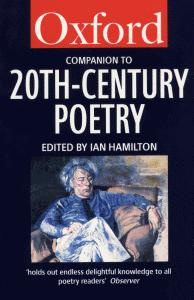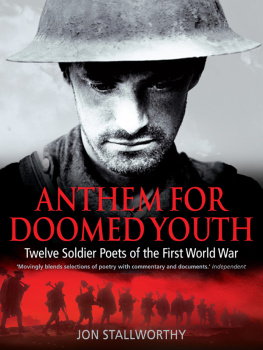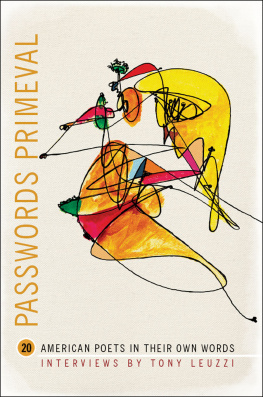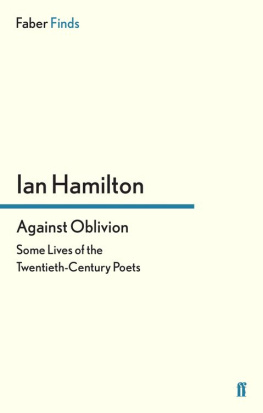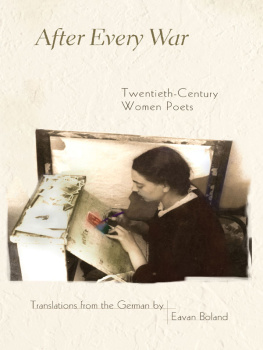The Poets of Rapallo

Great Clarendon Street, Oxford, OX2 6DP, United Kingdom
Oxford University Press is a department of the University of Oxford. It furthers the Universitys objective of excellence in research, scholarship, and education by publishing worldwide. Oxford is a registered trade mark of Oxford University Press in the UK and in certain other countries
Lauren Arrington 2021
The moral rights of the author have been asserted
First Edition published in 2021
Impression: 1
All rights reserved. No part of this publication may be reproduced, stored in a retrieval system, or transmitted, in any form or by any means, without the prior permission in writing of Oxford University Press, or as expressly permitted by law, by licence or under terms agreed with the appropriate reprographics rights organization. Enquiries concerning reproduction outside the scope of the above should be sent to the Rights Department, Oxford University Press, at the address above
You must not circulate this work in any other form and you must impose this same condition on any acquirer
Published in the United States of America by Oxford University Press
198 Madison Avenue, New York, NY 10016, United States of America
British Library Cataloguing in Publication Data
Data available
Library of Congress Control Number: 2020949672
ISBN 9780198846543
ebook ISBN 9780192585660
Printed and bound in the UK by
TJ Books Limited
Links to third party websites are provided by Oxford in good faith and for information only. Oxford disclaims any responsibility for the materials contained in any third party website referenced in this work.
For Nura and Sara, with the hope of a better world
The Making of The Poets of Rapallo
In the early years of the fascist regime, an unlikely assortment of poets from the United States, England, and Ireland gathered in a small town on the northwest coast of Italy. An array of quasi-friendships brought them together, in the orbit of the one poet who went to Italy for the politics: Ezra Pound, the fiery American who had already lit up London drawing rooms and Parisian cafes. Pound left his mark on literature in English for three reasons: his instigation of two important movements in the early twentieth century, Imagism and Vorticism that were both driven by his commitment to make it new, and his master-work The Cantos, most of which was written in Italy. In Rapallo, Pound hoped to make it new again. From 1928 to 1932, he undertook this work alongside the mature poet and elder Irish statesman, W.B. Yeats, with whom Pound had a long and complex set of poetic and personal relationships.
Pound and Yeatss presence in Rapallo oriented their literary networks from Paris, Dublin, and even New York onto a small town on the Italian Riviera. There, they were joined by two veterans of the First World War, Richard Aldington (an Englishman and associate of Pound and Yeats from London) and Thomas MacGreevy (an Irishman and close friend of George Yeats, married to W.B.). Pound and Yeats also drew to Rapallo an even younger generationthe self-identified Northumbrian poet Basil Bunting, and the cosmopolitan New Yorker Louis Zukofsky, son of immigrant Russian Jews. Bunting and Zukofsky, Aldington and MacGreevy forged friendships that lasted far beyond their time in Rapallo. As they became important twentieth-century poets in their own rights, they confided in one another while they tussled with the problem of how to account for Ezra Pound, andto a lesser degreefor W.B. Yeats, with whom they lived closely in Italy in a period that was marred by the rise of Mussolinis regime.
This book is about the poets relationships with one another, their collaborations as literary artists, and their intersections with Italian fascist politics, especially wider debates in Italy about what might constitute a fascist aesthetics. Most of the writers and artists who feature in this book did not support Mussolinis regime, and none was always in agreement with Ezra Pound. Yet even writers who were later explicitly anti-fascist were willing to overlookor at least to diminishthe severity of what was happening around them in Italy. The importance of some poets complicity in everyday fascist culturesuch as Basil Buntings role in the production of the literary supplement to the local newspaper Il Mareand his involvement in Rapallos concert series that was sponsored by the fascist statehas been elided by a critical focus on Pounds support of Mussolini as exceptional. This perception has been compounded by our tendency to read autobiographies and memoirs written by people in the Rapallo group as credible accounts of the poets proximity (or lack thereof) to Pound. How tempting it is to think that Thomas MacGreevy and Richard Aldington met in James Joyces apartment, or that Louis Zukofksys allegiance to Pound was due to poor self-confidence, or that Basil Buntings poetic style, as he describes his literary genealogy in interviews from the 1970s, developed concurrently tobut not in tandem withPounds poetic.

